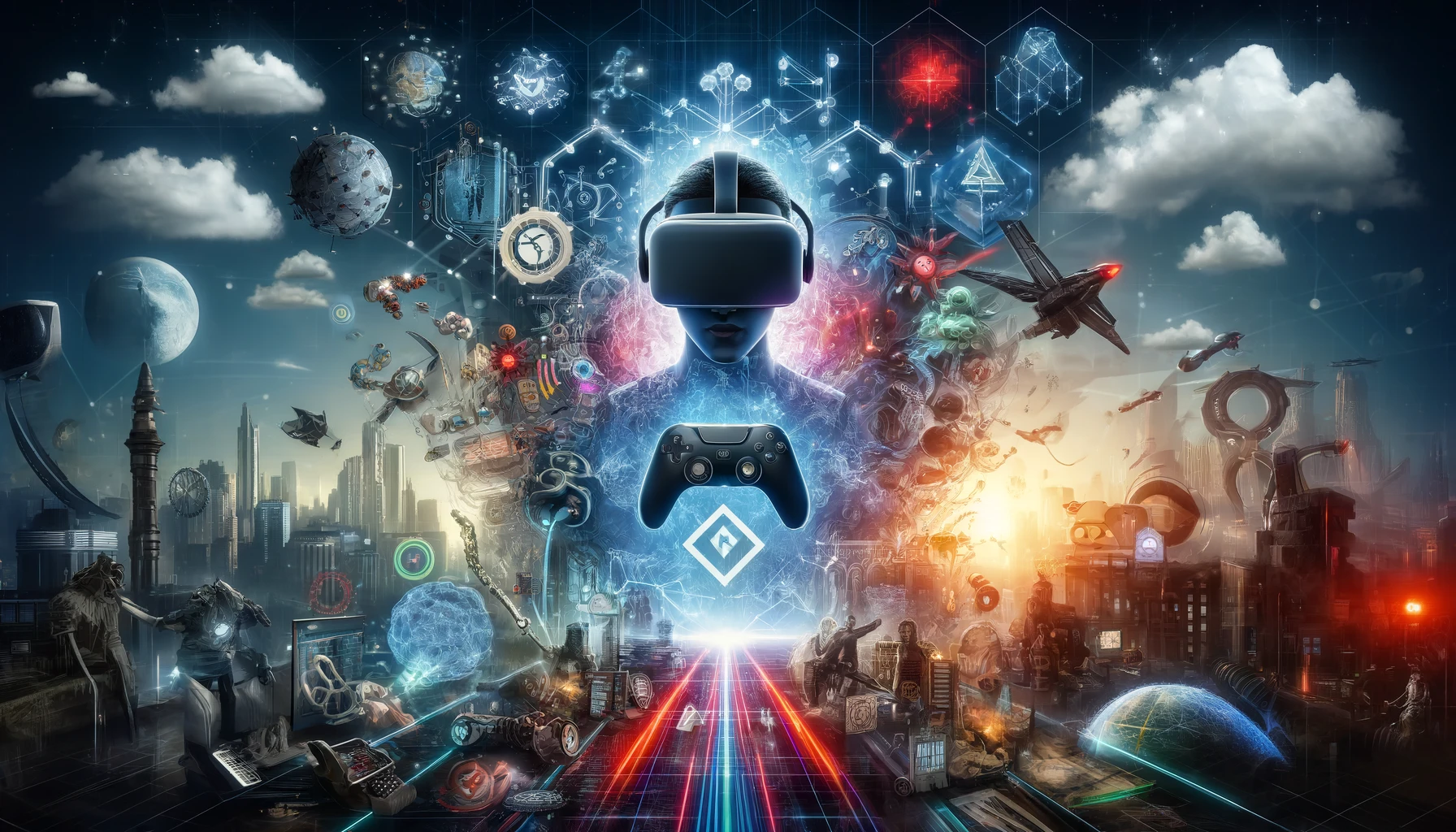The gaming industry is a global behemoth, with Newzoo reporting that the market will reach a staggering $200.8 billion in 2023.
But within this vast and ever-evolving landscape, a digital revolution is underway. Fueled by cutting-edge technologies, this transformation is reshaping how games are developed, distributed, and experienced.
For IT companies catering to the gaming industry, understanding these trends is crucial to providing the solutions that empower developers and studios to thrive in the new era.
Immersive Experiences Take Center Stage
Virtual Reality (VR) and Augmented Reality (AR) are no longer futuristic concepts – they’re rapidly becoming mainstream in gaming.
VR headsets like the Meta Quest 2 are making immersive experiences more accessible, with a projected 18.1 million VR users expected by the end of 2024.
AR, on the other hand, is blurring the lines between the physical and digital worlds. Games like Pokemon Go have already shown the potential of AR to create engaging experiences, and this trend is poised to accelerate with the development of more sophisticated AR glasses.
The Cloud Revolutionizes Accessibility
Cloud gaming services like Google Stadia and Microsoft xCloud are eliminating the need for expensive consoles and high-end PCs.
This “play anywhere” model opens doors for a wider audience to access AAA titles, with a projected market size of $3.5 billion by 2024.
For developers, cloud gaming removes hardware limitations, allowing them to create even more expansive and visually stunning games.
The Rise of AI-Powered Gaming
Artificial intelligence (AI) is no longer just for non-player characters (NPCs).
Developers are increasingly using AI to create dynamic and adaptive in-game environments, generate realistic dialogue, and personalize the player experience.
For instance, AI can tailor difficulty levels, recommend content, and even create unique side quests based on player behavior.
The Power of Blockchain in Gaming
Blockchain technology, the foundation of cryptocurrencies, is finding new applications in the gaming industry.
Blockchain-based games, often referred to as “play-to-earn” games, reward players with crypto tokens for their time and effort.
This creates a new in-game economy, where players can own and trade virtual assets.
While still in its early stages, blockchain has the potential to revolutionize how players interact with games and monetize their experiences.
Beyond the Tech: Embracing a Data-Driven Approach
Digital transformation goes beyond just implementing new technologies.
It’s about leveraging data to gain deeper insights into player behavior and preferences.
By analyzing player data, developers can optimize game design, personalize content delivery, and make data-driven decisions about marketing and monetization strategies.
How P99Soft Can Help You Power Up
As a leading IT solutions provider, P99Soft understands the complexities of the evolving gaming landscape.
We offer a comprehensive suite of services designed to help gaming companies navigate the digital transformation journey.
From cloud infrastructure solutions to data analytics platforms, P99Soft empowers you to leverage the latest technologies and gain a competitive edge.
FAQs
- What are the biggest challenges of digital transformation in gaming?
Security, data privacy, and the ever-changing technological landscape are some of the key challenges faced by gaming companies.
- How can I ensure a smooth digital transformation for my gaming studio?
Partnering with an experienced IT solutions provider like P99Soft can help you develop a strategic roadmap, identify the right technologies, and ensure seamless implementation.
- What are the benefits of cloud gaming for developers?
Cloud gaming eliminates hardware limitations, reduces development costs, and allows for wider distribution of games.
- Is VR the future of gaming?
VR offers an incredibly immersive experience, but widespread adoption may be hindered by factors like cost and accessibility. AR, with its ability to blend the physical and digital worlds, might be a more natural progression for casual gamers.
- How can I leverage AI in my game development process?
AI can be used for a variety of purposes, such as creating smarter enemies, personalizing in-game experiences, and automating repetitive tasks.
Conclusion
The digital transformation of the gaming industry is creating a world of possibilities.
By embracing new technologies and data-driven strategies, gaming companies can create more immersive, engaging, and profitable experiences.
But the journey doesn’t end here. With constant innovation and a commitment to understanding player needs, the future of gaming promises to be even more exciting.
Are you ready to power up your game in the digital age?



